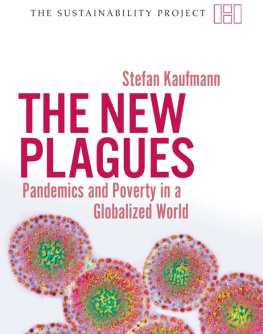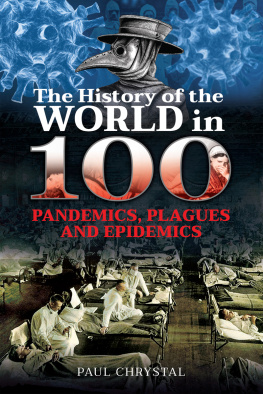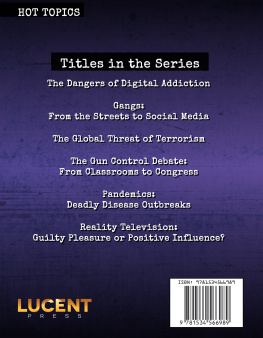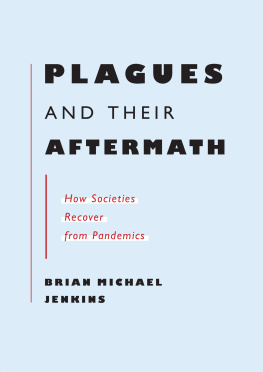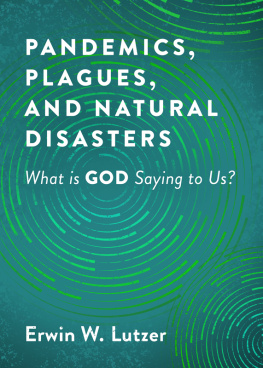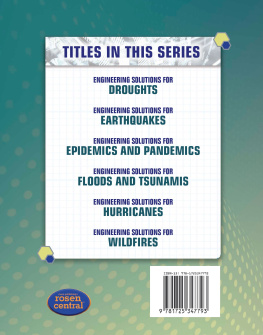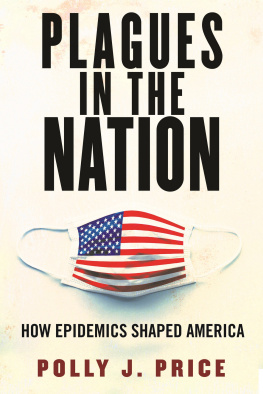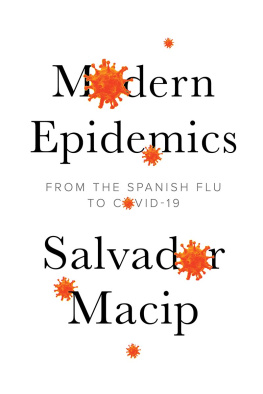Editors Foreword
Sustainability Project
Sales of the German-language edition of this series have exceeded all expectations. The positive media response has been encouraging, too. Both of these positive responses demonstrate that the series addresses the right topics in a language that is easily understood by the general reader. The combination of thematic breadth and scientifically astute, yet generally accessible writing, is particularly important as I believe it to be a vital prerequisite for smoothing the way to a sustainable society by turning knowledge into action. After all, I am not a scientist myself; my background is in business.
A few months ago, shortly after the first volumes had been published, we received suggestions from neighboring countries in Europe recommending that an English-language edition would reach a far larger readership. Books dealing with global challenges, they said, require global action brought about by informed debate amongst as large an audience as possible. When delegates from India, China, and Pakistan voiced similar concerns at an international conference my mind was made up. Dedicated individuals such as Lester R. Brown and Jonathan Porritt deserve credit for bringing the concept of sustainability to the attention of the general public, I am convinced that this series can give the discourse about sustainability something new.
Two years have passed since I wrote the foreword to the initial German edition. During this time, unsustainable developments on our planet have come to our attention in ever more dramatic ways. The price of oil has nearly tripled; the value of industrial metals has risen exponentially and, quite unexpectedly, the costs of staple foods such as corn, rice, and wheat have reached all-time highs. Around the globe, people are increasingly concerned that the pressure caused by these drastic price increases will lead to serious destabilization in China, India, Indonesia, Vietnam, and Malaysia, the worlds key developing regions.
The frequency and intensity of natural disasters brought on by global warming has continued to increase. Many regions of our Earth are experiencing prolonged droughts, with subsequent shortages of drinking water and the destruction of entire harvests. In other parts of the world, typhoons and hurricanes are causing massive flooding and inflicting immeasurable suffering.
The turbulence in the worlds financial markets, triggered by the US sub-prime mortgage crisis, has only added to these woes. It has affected every country and made clear just how unscrupulous and sometimes irresponsible speculation has become in todays financial world. The expectation of exorbitant short-term rates of return on capital investments led to complex and obscure financial engineering. Coupled with a reckless willingness to take risks everyone involved seemingly lost track of the situation. How else can blue chip companies incur multi-billion dollar losses? If central banks had not come to the rescue with dramatic steps to back up their currencies, the worlds economy would have collapsed. It was only in these circumstances that the use of public monies could be justified. It is therefore imperative to prevent a repeat of speculation with short-term capital on such a gigantic scale.
Taken together, these developments have at least significantly improved the readiness for a debate on sustainability. Many more are now aware that our wasteful use of natural resources and energy have serious consequences, and not only for future generations.
Two years ago, who would have dared to hope that WalMart, the worlds largest retailer, would initiate a dialog about sustainability with its customers and promise to put the results into practice? Who would have considered it possible that CNN would start a series Going Green? Every day, more and more businesses worldwide announce that they are putting the topic of sustainability at the core of their strategic considerations. Let us use this momentum to try and make sure that these positive developments are not a flash in the pan, but a solid part of our necessary discourse within civic society.
However, we cannot achieve sustainable development through a multitude of individual adjustments. We are facing the challenge of critical fundamental questioning of our lifestyle and consumption and patterns of production. We must grapple with the complexity of the entire earth system in a forward-looking and precautionary manner, and not focus solely on topics such as energy and climate change.
The authors of these twelve books examine the consequences of our destructive interference in the Earth ecosystem from different perspectives. They point out that we still have plenty of opportunities to shape a sustainable future. If we want to achieve this, however, it is imperative that we use the information we have as a basis for systematic action, guided by the principles of sustainable development. If the step from knowledge to action is not only to be taken, but also to succeed, we need to offer comprehensive education to all, with the foundation in early childhood. The central issues of the future must be anchored firmly in school curricula, and no university student should be permitted to graduate without having completed a general course on sustainable development. Everyday opportunities for action must be made clear to us all young and old. Only then can we begin to think critically about our lifestyles and make positive changes in the direction of sustainability. We need to show the business community the way to sustainable development via a responsible attitude to consumption, and become active within our sphere of influence as opinion leaders.
For this reason, my foundation Forum fr Verantwortung, the ASKO EUROPA-FOUNDATION, and the European Academy Otzenhausen have joined forces to produce educational materials on the future of the Earth to accompany the twelve books developed at the renowned Wuppertal Institute for Climate, Environment and Energy. We are setting up an extensive program of seminars, and the initial results are very promising. The success of our initiative Encouraging Sustainability, which has now been awarded the status of an official project of the UN Decade Education for Sustainable Development, confirms the publics great interest in, and demand for, well-founded information.
I would like to thank the authors for their additional effort to update all their information and put the contents of their original volumes in a more global context. My special thanks goes to the translators, who submitted themselves to a strict timetable, and to Annette Maas for coordinating the Sustainability Project. I am grateful for the expert editorial advice of Amy Irvine and the Haus Publishing editorial team for not losing track of the 3600-page-work.
Taking Action Out of Insight and Responsibility
We were on our way to becoming gods, supreme beings who could create a second world, using the natural world only as building blocks for our new creation.
This warning by the psychoanalyst and social philosopher Erich Fromm is to be found in To Have or to Be? (1976). It aptly expresses the dilemma in which we find ourselves as a result of our scientific-technical orientation.
The original intention of submitting to nature in order to make use of it (knowledge is power) evolved into subjugating nature in order to exploit it. We have left the earlier successful path with its many advances and are now on the wrong track, a path of danger with incalculable risks. The greatest danger stems from the unshakable faith of the overwhelming majority of politicians and business leaders in unlimited economic growth which, together with limitless technological innovation, is supposed to provide solutions to all the challenges of the present and the future.

